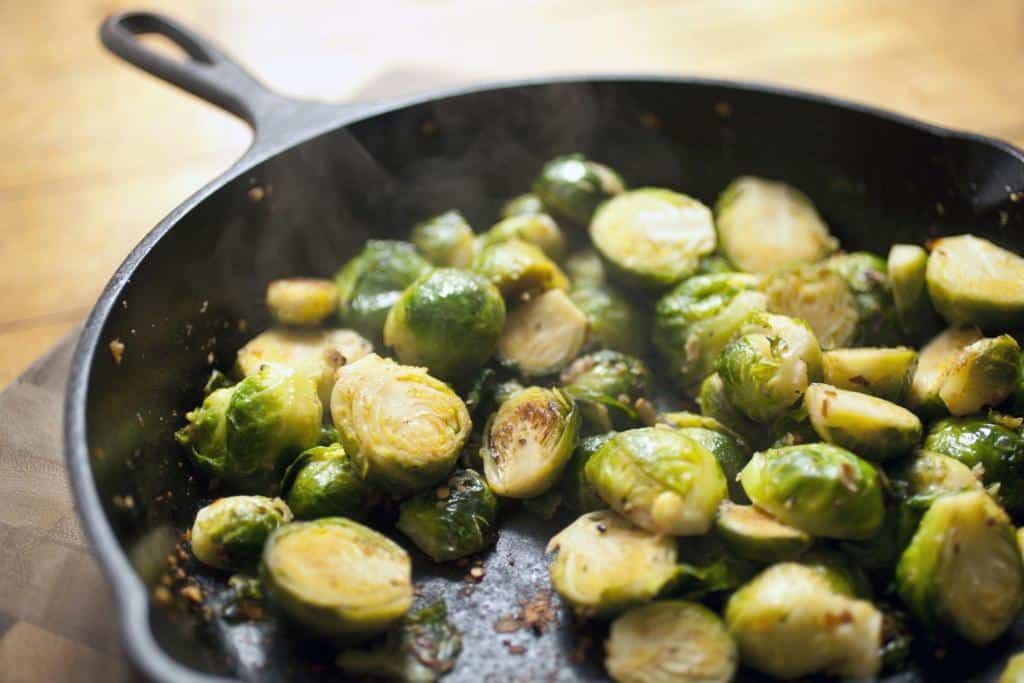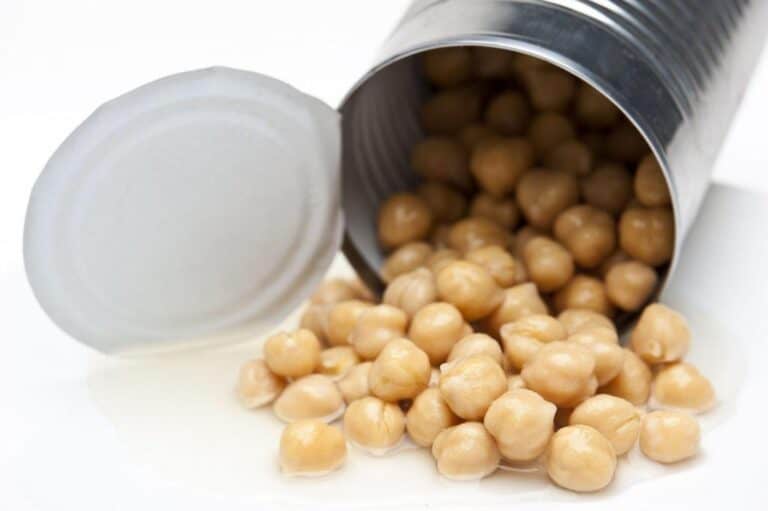Does Eating Brussels Sprouts Make You Poop and Cause Diarrhea?

Brussels sprouts, those tiny green veggies that resemble mini cabbages, have become a subject of curiosity and debate when it comes to their impact on our digestive system. You may have heard conflicting opinions about whether they make you poop or, on the contrary, lead to bouts of uncomfortable diarrhea. Well, it’s time to unravel the truth and put those rumors to rest.
In this article, we’ll dive deep into the world of Brussels sprouts and their effects on your digestive health. We’ll explore the role of fiber, their potential for promoting regularity, and address the concerns surrounding diarrhea. So, if you’re looking for answers to your Brussels sprouts-related questions, you’ve come to the right place.
Prepare to separate fact from fiction as we embark on a journey through the intricate relationship between Brussels sprouts and your precious bathroom breaks. Let’s uncover the truth together and shed light on whether these pint-sized powerhouses truly have an impact on your poop and the dreaded D-word: diarrhea.
Introduction
Brussels sprouts are a versatile and nutritious vegetable that often sparks debates about their impact on digestion. Some individuals claim that consuming Brussels sprouts can lead to digestive issues such as excessive bowel movements and even diarrhea. In this article, we will explore the relationship between Brussels sprouts and digestive health to determine whether these claims hold true.
Brussels sprouts, part of the Brassicaceae family, are miniature cabbage-like vegetables that pack a punch in terms of nutritional value. Rich in vitamins, minerals, and dietary fiber, they offer an array of health benefits. However, there have been concerns raised about their potential adverse effects on the digestive system.
Nutritional Profile of Brussels Sprouts
Before delving into the digestive aspects, let’s first examine the nutritional composition of Brussels sprouts. These cruciferous vegetables are a powerhouse of nutrients, including vitamins C and K, folate, manganese, and potassium. Additionally, they are notably high in dietary fiber, which plays a crucial role in supporting digestive health.
Table: Nutritional Content of Brussels Sprouts
| Nutrient | Amount per 1 cup (156g) |
| Calories | 56 |
| Carbohydrates | 11 grams |
| Fiber | 3.8 grams |
| Protein | 4 grams |
| Vitamin C | 124% of the DV |
| Vitamin K | 274% of the DV |
| Folate | 24% of the DV |
| Manganese | 24% of the DV |
| Potassium | 14% of the DV |
Note: DV refers to the Daily Value, based on a 2,000-calorie diet.
Does Eating Brussels Sprouts Make You Poop and Cause Diarrhea?
Brussels sprouts, like many other high-fiber foods, can indeed have an impact on bowel movements. The fiber content in Brussels sprouts adds bulk to the stool and can help promote regularity. However, for some individuals, consuming a significant amount of Brussels sprouts or suddenly increasing fiber intake may lead to loose stools or even diarrhea. This can be attributed to a few factors.
Firstly, Brussels sprouts are rich in insoluble fiber, which adds bulk to the stool. While this can be beneficial for those with constipation, it can have a laxative effect when consumed in excess. The sudden increase in fiber can speed up the transit time of food through the digestive system, resulting in loose stools.
Secondly, some people may be more sensitive to the specific type of fiber found in Brussels sprouts. This includes substances like cellulose and hemicellulose, which digestive enzymes cannot fully break down. These fibers draw water into the intestines, softening the stool and potentially leading to diarrhea if consumed in large quantities.
It’s important to note that individual tolerance to Brussels sprouts and their effects on bowel movements can vary. While some individuals may experience looser stools or diarrhea after consuming Brussels sprouts, others may not be affected at all. Moderation and balance are key when it comes to incorporating Brussels sprouts into your diet.
| Fiber Content in Brussels Sprouts |
| Fiber per 100g: 3.8 grams |
| Insoluble Fiber: 2.7 grams |
| Soluble Fiber: 1.1 grams |
Gas and Bloating from Brussels Sprouts

Gas and bloating are common complaints associated with Brussels sprouts. These cruciferous vegetables contain sulfur compounds, such as glucosinolates, which can be difficult for some individuals to digest fully. As a result, the gut bacteria break down these compounds, releasing gases like hydrogen and methane, leading to bloating and flatulence.
It’s important to note that gas and bloating can be a result of various factors, including individual tolerance, gut microbiota composition, and overall diet. If you experience persistent discomfort, it may be worth consulting a healthcare professional.
Brussels Sprouts and Diarrhea
Many individuals have wondered if Brussels sprouts can cause diarrhea. While it is true that some people may experience loose stools or diarrhea after consuming Brussels sprouts, this is not a universal reaction. Let’s delve into the potential causes and mechanisms behind this digestive issue.
Potential Causes of Diarrhea
- Fiber Content: Brussels sprouts are rich in dietary fiber, which can have a laxative effect when consumed in excess. The high fiber content adds bulk to the stool, promoting regular bowel movements. However, if you consume an excessive amount of fiber, it can lead to loose stools or diarrhea.
- Intolerance or Sensitivity: Some individuals may have an intolerance or sensitivity to certain components in Brussels sprouts. For example, some people may have difficulty digesting the sugars found in these vegetables, such as raffinose, which can lead to gastrointestinal discomfort and diarrhea.
Mechanisms Behind Diarrhea
When it comes to the mechanisms behind Brussels sprouts causing diarrhea, several factors come into play:
- Osmotic Effect: The high fiber content in Brussels sprouts can draw water into the intestine, resulting in loose stools or diarrhea, especially if consumed in large quantities.
- Gas Production: The fermentation of undigested fiber by gut bacteria can produce gas, which may contribute to loose stools or diarrhea.
Individual Variations and Tolerance to Brussels Sprouts
It is important to note that individuals differ in their ability to tolerate Brussels sprouts and their impact on digestion. Some people can consume these vegetables without experiencing any digestive issues, while others may be more sensitive. Here are a few factors that can influence individual variations:
- Enzyme Production: Enzymes responsible for breaking down certain components in Brussels sprouts can vary among individuals. For example, some people may have lower levels of the enzyme necessary to break down raffinose, leading to digestive discomfort.
- Gut Microbiota: The composition of the gut microbiota differs from person to person. The type and amount of bacteria present in the gut can affect how well Brussels sprouts are digested and tolerated.
- Individual Sensitivities: Certain individuals may have specific sensitivities or allergies to compounds present in Brussels sprouts, such as sulfur-containing compounds, which can contribute to digestive discomfort.
- Pre-existing Digestive Disorders: People with pre-existing digestive disorders, such as celiac disease or gastroesophageal reflux disease (GERD), may have a higher likelihood of experiencing gas and bloating from Brussels sprouts due to the underlying condition’s impact on digestive function.
It’s important to listen to your body and pay attention to how Brussels sprouts or any other food affects your digestion. If you notice persistent or severe digestive symptoms after consuming Brussels sprouts, it may be helpful to keep a food diary and consult with a healthcare professional to determine the best course of action for your individual needs.
Tips for Minimizing Digestive Issues
If you enjoy Brussels sprouts but want to minimize the risk of digestive issues, consider the following tips:
- Cooking Methods: Cooking Brussels sprouts can help break down some of the components that may cause digestive discomfort. Steaming, roasting, or sautéing Brussels sprouts can make them easier to digest for some individuals.
- Portion Control: Pay attention to your portion sizes. Consuming large amounts of Brussels sprouts in a single sitting may increase the risk of digestive issues. Start with smaller portions and observe how your body responds.
- Gradual Introduction: If you’re new to Brussels sprouts or have had previous digestive issues, introduce them gradually into your diet. Start with small servings and gradually increase the amount over time to allow your body to adjust.
Read: Can You Eat Too Many Brussels Sprouts? How Much Is Too Much?
- Fiber Diversity: Incorporate a variety of fiber-rich foods into your diet, not just Brussels sprouts. This can help distribute the fiber load and reduce the chances of experiencing digestive issues. Include other vegetables, fruits, whole grains, and legumes to promote a balanced intake of dietary fiber.
- Drink Plenty of Water: Staying well-hydrated is important for maintaining healthy digestion. Drinking an adequate amount of water can help soften stools and prevent constipation, which can be a common issue when consuming fiber-rich foods like Brussels sprouts.
- Chew Thoroughly: Take your time to chew Brussels sprouts thoroughly before swallowing. Chewing breaks down the food into smaller particles, making it easier for digestion to occur. It also allows enzymes in saliva to begin the process of breaking down carbohydrates.
- Avoid Triggering Foods: If you have identified specific trigger foods that worsen your digestive symptoms, consider avoiding them or consuming them in moderation. This can help minimize the overall impact on your digestive system.
- Seek Professional Guidance: If you have persistent digestive issues or a known digestive disorder, consult with a healthcare professional, such as a gastroenterologist or registered dietitian. They can provide personalized advice and guidance based on your specific needs and medical history.
Remember, each person’s digestive system is unique, and what works for one individual may not work for another. It’s important to listen to your body, make informed choices, and seek professional guidance if needed to ensure optimal digestive health while enjoying the nutritional benefits of Brussels sprouts and other foods.
Conclusion
In conclusion, while some individuals may experience digestive issues such as diarrhea after consuming Brussels sprouts, it is not a guaranteed reaction for everyone. The high fiber content in Brussels sprouts can contribute to looser stools or diarrhea if consumed in excessive amounts.
However, individual variations, cooking methods, and portion control play a role in how well these vegetables are tolerated. Despite potential digestive concerns and pooping, the health benefits of Brussels sprouts make them a valuable addition to a balanced diet. As with any dietary change, it’s important to listen to your body and make choices that suit your individual needs and preferences.
To minimize potential digestive issues, it’s advisable to cook Brussels sprouts thoroughly and consume them in moderation. If you have concerns or experience persistent digestive discomfort, consulting a healthcare professional is always recommended.
FAQs
Can Brussels sprouts cause stomach pain?
While some individuals may experience stomach pain or discomfort after consuming Brussels sprouts, it varies from person to person. Factors such as individual tolerance and cooking methods can influence the likelihood of stomach pain.
How can I reduce gas from eating Brussels sprouts?
To minimize gas production, try cooking Brussels sprouts thoroughly, chewing them thoroughly. Consuming them in moderation, do not eat Brussels sprouts every day. These practices can help break down the sulfur compounds and reduce the risk of excessive gas.
Are cooked Brussels sprouts easier to digest?
Yes, cooking Brussels sprouts can make them easier to digest. Cooking helps break down complex fibers and sulfur compounds, making them more tolerable for some individuals.
Can Brussels sprouts cause constipation?
On the contrary, Brussels sprouts are high in dietary fiber, which promotes regular bowel movements and helps prevent constipation. However, individual responses may vary.
Are there any substitutes for Brussels sprouts that are easier on digestion?
If you find Brussels sprouts challenging to digest, you can try substituting them with other cruciferous vegetables such as broccoli, cauliflower, or kale. These vegetables offer similar health benefits and may be better tolerated.
Should I avoid Brussels sprouts altogether if I experience digestive issues after eating them?
While digestive issues may occur in some individuals, it’s not necessary to completely avoid Brussels sprouts unless they cause severe discomfort. Experiment with cooking methods, portion sizes, and consuming them alongside other foods to find what works best for you.
Are the digestive issues caused by Brussels sprouts the same for everyone?
No, the digestive response to Brussels sprouts can vary from person to person. Factors such as individual tolerance, gut microbiota composition, and overall diet play a role in how Brussels sprouts affect each individual.






